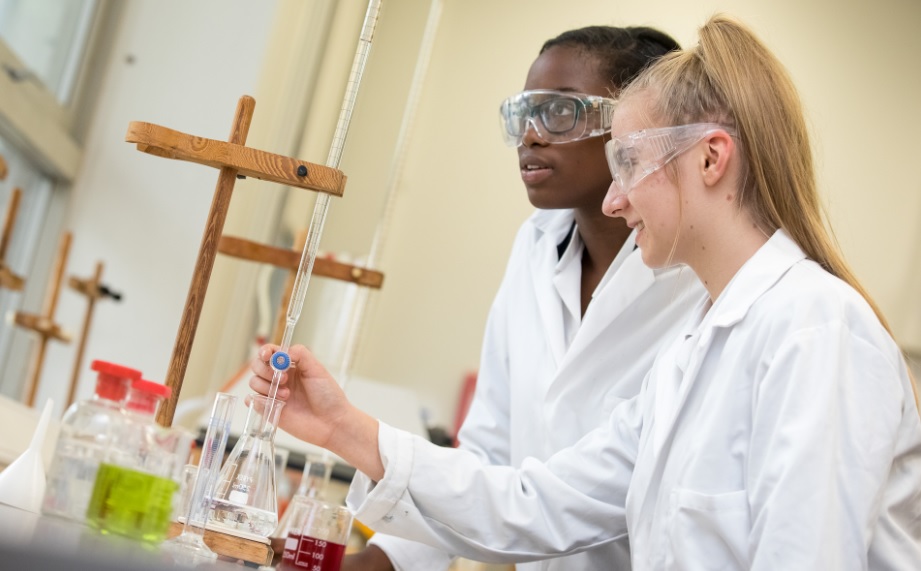Science

Key Stage 3:
Key Stage 4:
Year 9 Curriculum Overview
Year 10 Curriculum Overview
Year 11 Curriculum Overview
Health and Social Care Curriculum Overview:
Key Stage 5:
Biology Curriculum Overview
Chemistry Curriculum Overview
Physics Curriculum Overview
Staffing
The department is staffed with an experienced team of committed Biology, Chemistry and Physics specialists. There are eight full-time members of the department and two part-time teachers. In addition, the department is supported by two laboratory technicians.
Courses
In Year 7 students have 4 lessons per week and in Year 8 students have 3 lessons a week. During Key Stage 3, students follow an accelerated 2-year scheme which is designed to give them a solid foundation in the fundamental ideas of Science before moving on to GCSE in Year 9.
Year 7 Science Grade Descriptors
Year 8 Science Grade Descriptors
Year 9 Science Grade Descriptors
From Year 9 (4 lessons per week), students follow the AQA syllabus for their Science GCSEs with approximately 50% of the year group following the Separate Science route (Biology, Chemistry and Physics) and 50% following the Combined Science route. During year 9, all students follow a common course covering areas of the Biology, Chemistry and Physics syllabus. It is a student’s performances in Year 9 assessments and the end-of-year exam that determine whether Separate or Combined Science is the more appropriate route in Years 10 and 11 (6 lessons per week). The results at GCSE are outstanding and are consistently in the top 5% of the country in terms of progress.
At A-Level we have two groups for Biology (Edexcel) and one each for Chemistry (AQA), Physics (AQA) and Applied Human Biology(AQA). We have a history of excellent exam results, consistently achieving a 100% pass rate with a very high proportion of students going on to study STEM subjects at university.
Organisation and Methods of Assessment
The assessment of pupils form an important aspect of the department’s work. Each pupil’s progress is closely monitored by assessment tests. Investigations and practical activities also form part of their continuous assessment. All pupils are assessed by written work throughout the year. Pupil progress is closely monitored against individual targets and formal records are kept in accordance with school policy. Any causes for concern are flagged early so that effective intervention strategies can be implemented whenever student achievement is falling below expectations.
Resources
The department is well stocked with textbooks, worksheets and other teacher materials, including computer and multimedia resources. The department has its own set of laptops which are used regularly and seen as an integral part of many lessons. All science laboratories are fitted with interactive whiteboards and there is a wide range of science software installed on the school network, including packages for Key Stage 3, GCSE and A-Level students.
Extra-curricular Activities
The department offers a Key Stage 3 CREST club.
